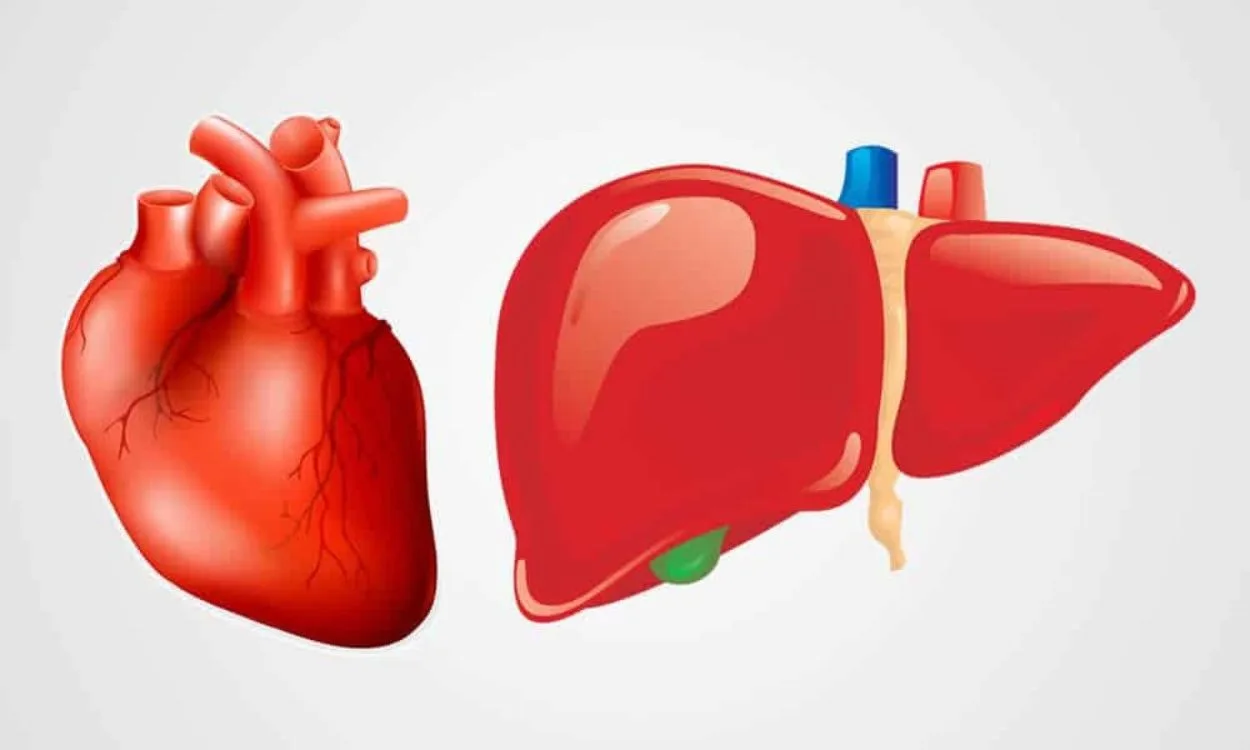What is the relationship between fatty liver and heart disease?
Fatty liver disease, also known as hepatic steatosis, is a condition characterized by the accumulation of fat in the liver. This excess fat can interfere with the normal functioning of the liver and lead to various health problems. One such health concern is the potential link between fatty liver and heart disease. In this article, we will explore the relationship between these two conditions and understand how they are connected.
Understanding Fatty Liver Disease
Fatty liver disease is commonly associated with lifestyle factors such as obesity, poor diet, sedentary lifestyle, and excessive alcohol consumption. There are two main types of fatty liver disease:
- Non-alcoholic fatty liver disease (NAFLD): This type of fatty liver disease occurs in individuals who do not consume excessive amounts of alcohol. NAFLD is often linked to metabolic disorders such as obesity, insulin resistance, and high blood pressure.
- Alcoholic fatty liver disease (AFLD): As the name suggests, alcoholic fatty liver disease is caused by excessive alcohol consumption. Regular and heavy alcohol intake can lead to the accumulation of fat in the liver and subsequent liver damage.
The Connection Between Fatty Liver and Heart Disease
Recent research suggests that there is a significant association between fatty liver disease and an increased risk of heart disease. Let’s explore some key factors that contribute to this relationship:
- Insulin resistance: Fatty liver disease is closely linked to insulin resistance, which is a condition characterized by the body’s inability to effectively use insulin hormone. Insulin resistance can lead to an imbalance in blood sugar levels and an increased risk of developing cardiovascular problems.
- Inflammation: Fatty liver disease triggers inflammation in the liver, which can spread throughout the body and affect the cardiovascular system. Chronic inflammation is a known risk factor for heart disease, as it can damage blood vessels and increase the risk of atherosclerosis (hardening of the arteries).
- Dyslipidemia: Fatty liver disease is often associated with dyslipidemia, a condition characterized by abnormal lipid levels in the blood. Elevated levels of triglycerides and low-density lipoprotein (LDL) cholesterol, along with reduced levels of high-density lipoprotein (HDL) cholesterol, can contribute to the development of atherosclerosis and increase the risk of heart disease.
- Increased cardiovascular risk factors: Individuals with fatty liver disease often have other risk factors for heart disease, such as obesity, hypertension (high blood pressure), and type 2 diabetes. These underlying conditions can further contribute to the development of cardiovascular problems.
- Shared risk factors: Fatty liver disease and heart disease share common risk factors, such as unhealthy diet, sedentary lifestyle, and excessive alcohol consumption. Addressing these risk factors is crucial in reducing the risk of both conditions.
Taking Control of Your Health with Fitpaa
Understanding the relationship between fatty liver and heart disease is just the first step towards taking control of your health. If you are concerned about your liver health and want to make positive changes in your lifestyle, Fitpaa is here to help. Fitpaa is a comprehensive health and fitness platform that combines the latest research in lifestyle medicine and behavioral therapy to help you achieve your health goals.
With Fitpaa, you can:
- Take the Metabolism Assessment: Identify the root cause of your health condition by assessing your current metabolism. This will help you understand the impact of lifestyle choices on your liver health and overall well-being.
- Get your Fitpaa Capsule: After the metabolism assessment, consult with our expert team of fitness coaches, nutritionists, and doctors to develop a personalized Fitpaa Capsule. This capsule is designed to optimize your metabolism, support liver health, and help you achieve your health and fitness goals.
- Follow your Fitpaa Capsule: Use the Fitpaa mobile app to easily follow your personalized Fitpaa Capsule. The app provides tools like a virtual workout trainer, diet tracker, performance tracking, and progress tracking, making it convenient to stay on track with your health goals.
- Receive support from your health and fitness team: Your Fitpaa fitness planner, nutritionist, and doctors will regularly review your progress, provide unlimited consultations, and offer guidance to keep you motivated and on track towards achieving your goals.
By incorporating Fitpaa into your lifestyle, you can not only address the link between fatty liver and heart disease but also improve your overall health and well-being. Fitpaa’s goal-oriented services come with a 100% guarantee, ensuring that you achieve your health and fitness goals with their dedicated support.
Don’t wait any longer to take control of your health. Download the Fitpaa app today and embark on a journey towards a healthier and happier life. Your well-being is our mission, and we are passionate about helping you achieve your health and fitness goals.









